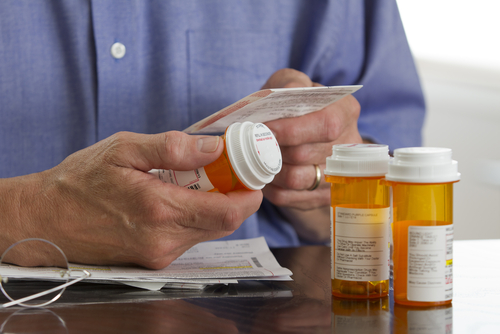There’s no pill that someone can take to magically cure addiction. Recovery takes hard work and consistency, no matter what stage of the journey. There is no easy fix to solve drug dependence. However, there is medication for addiction that can support addicts and alcoholics in managing cravings. Weighing the pros and cons of these medications is an important step in deciding if it’s the right path for you.
What is Medication for Addiction?
There are several different types of medication for addiction. Some are called “maintenance drugs”, or medications that replace opiates for addicts. These medications include suboxone and methadone. These drugs are actually opiates and can be extremely addictive. Although they don’t cause the euphoria that heroin or other illicit drugs may produce, they do work on the same receptors in the brain. People usually take these drugs to detox or as part of a long-term plan to replace their drug of choice with these medications. These drugs are controversial because technically, the patient is still dependent on them.
Unlike suboxone or methadone, there are several types of medication for addiction that are not habit-forming. This class of drugs includes medications that reduce cravings or block the effects of drugs and alcohol. It also includes medications that cause unpleasant side effects when the patient drinks or uses. Medication for addiction can take many forms. Depending on the person, they can be a great help in early recovery.

Pros Of Taking Medication For Addiction
- Reduced cravings: Medications can help to reduce or eliminate the intense cravings that individuals with addiction often experience, making it easier to resist the urge to use drugs or alcohol.
- Improved mood and mental health: Certain medications can help to improve mood and reduce symptoms of depression or anxiety, which can be beneficial for individuals with addiction who may have co-occurring mental health conditions.
- Reduced withdrawal symptoms: Medications can help to ease the physical symptoms of withdrawal that can occur when someone stops using drugs or alcohol, making the detoxification process more manageable.
- Increased engagement in treatment: When medications are used in conjunction with behavioral therapies, individuals with addiction may be more likely to remain engaged in treatment and experience greater success in their recovery.
Cons Of Taking Medication For Addiction
- Risk of dependence: Some medications used to treat addiction can be addictive themselves, leading to a risk of dependence or even addiction to the medication.
- Side effects: As with any medication, there is a risk of side effects, which can range from mild to severe.
- Cost: Medications used to treat addiction can be expensive and may not be covered by insurance.
- Stigma: Some individuals may feel stigmatized or judged for using medication to treat addiction, which can make it difficult for them to access the treatment they need.

Types of Long-Term Medication for Addiction
One of the commons drugs prescribed to addicts and alcoholics in recovery is naltrexone. This medication for addiction comes in a few different forms, including a pill or a monthly shot. The main benefits of this medication are that it blocks the effects of opiates and alcohol and can reduce cravings. This medication blocks the receptors in the brain that react to alcohol and opiates. Even when the individual uses, they don’t experience the “high” of the substances. It can also reduce cravings for people in early recovery.
One of the downsides of these types of medication for addiction are that they can be dangerous for some patients. For example, if someone tries to “breakthrough” the blocking effects of the drug to get high or drunk, they may not realize how much they are using. They can end up overdosing even if they don’t feel any effects of the drugs. These medications can be very useful. However, they should only be taken under careful supervision from a doctor trained in addiction treatment.
Other types of medication for addiction include “aversion drugs”, such as Antabuse. This medication is prescribed to people with alcoholism. When someone takes this drug, any time they consume alcohol, they will experience unpleasant side effects. This can include itchiness, flushing, and nausea. The purpose of this type of medication is to discourage alcohol or drug use. It is effective for some, but the nasty side effects are dangerous if the individual does not commit to abstaining from drinking.
Should I Take Medication for Addiction?
Deciding to take medication for addiction is a very personal choice. For some people, it may provide another layer of support. Others who have struggled for a long time to stop using, these drugs could be that extra “boost” they need to stay clean and sober for a sustained period. For others, these drugs can come with unpleasant side effects, and in the worst cases, can be dangerous. Deciding if medication is the best course of action is up to the individual and their treatment team.
Other Treatments For Addiction
- Behavioral therapy: This type of therapy helps individuals to identify and change the behaviors and thought patterns that contribute to their addiction. This can be done through individual or group therapy sessions, and may include techniques such as cognitive-behavioral therapy (CBT) or contingency management.
- 12-step programs: Programs like Alcoholics Anonymous and Narcotics Anonymous use a group-based approach to help individuals with addiction. Members share their experiences and support each other in their recovery efforts.
- Motivational interviewing: This is a counseling approach that helps individuals to identify their reasons for change and build motivation to make positive changes in their life.
- Mindfulness-based therapies: These therapies focus on cultivating awareness and acceptance of the present moment, which can help individuals to manage their emotions and reduce stress and anxiety.
- Exercise and nutrition: Regular exercise and a healthy diet can help individuals to improve their physical and mental health, which can support their recovery efforts.
- Family therapy: This type of therapy can help individuals to address family dynamics that may be contributing to their addiction, and can help to rebuild supportive relationships with loved ones.
Although medication for addiction can be very useful, ultimately, recovery depends on a lot of hard emotional work. This is usually accomplished through therapy, recovery fellowships, and learning new, healthy routines. Medication for addiction can be great, but it isn’t necessarily a replacement for a treatment program and a recovery lifestyle. Most people need therapeutic and social support to stay clean and sober. Many others also need psychiatric support to manage co-occurring disorders, like depression or anxiety. Any decision in early recovery should be made after careful consideration, research, and support from professionals. Medication for addiction is no different! There are countless elements that can support recovery. Looking into each one, with guidance from experienced professionals and support, is always the best way to approach any decision in early recovery.






